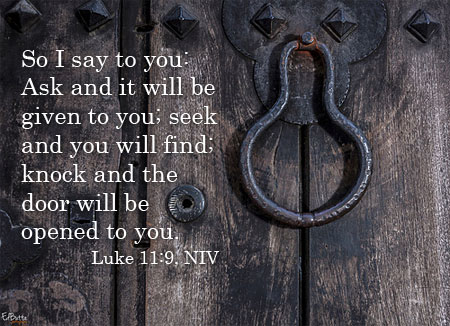Compendium of the Social Doctrine of the Church, Part II, Chapter 8
The Compendium begins its account of the role of the political community by recounting the biblical ambiguity with regard to political authority. When the Israelites first ask the judge and prophet Samuel for a king (2 Samuel 8) he warns them that kings will tax their harvests and send their sons off to war to be killed. And yet the king is called to enact God’s justice for the widow, the orphan, and the stranger by fulfilling his part in the covenant with Yahweh. Likewise, Jesus rejects a vision of the Messiah as political ruler, and denounces the oppressive power of political and religious leaders, while also affirming that we are to render what is due to Caesar (Mk 12:13-17); and Paul insists on due deference to those who exercise political authority (Rom 13).
This same ambiguity can be found in contemporary social ethics as well. For example, the well-known Protestant social ethicist Reinhold Niebuhr claimed that the Gospel ethic was suitable only for individuals, while societies had to practice a different ethic of “political realism.” For him, law and political authority are justified and made necessary by the reality of human sinfulness and the responsibility of political authority to mitigate its corrosive effects on society. Other contemporary political theologians, following an interpretation of Augustine’s City of God (especially book 19), juxtapose the earthly city with the heavenly city, claiming that true justice is only possible in the Kingdom of God. Catholic social teaching has tended to follow a more Aristotelian-Thomistic approach to the question of political community by taking seriously Aristotle’s claim that human beings are ‘social animals,’ and as such are naturally made for community, including its political dimensions.
This section of the Compendium can best be understood as a reflection of that basic insight that human beings are rational social animals, called to exercise our freedom together in community, and to seek the common good and the good of each individual member of society together. Political community, entailing the more formal elements of law, politics, local, national, and international government, and overseen by those who hold elected or duly appointed positions of authority – despite the constant tendency toward corruption and abuse of power – is justified in so far as it fosters and supports the common good and the good of the human person. As such political community can be considered a natural element of human life, not something imposed solely for the purposes of punishment or restraining evil.
Moreover, one could view the political community as the top-tier of a hierarchy of social institutions, each of which likewise exists to support the flourishing of its members, and as existing solely to serve the purpose of safeguarding and promoting the various elements of a well-ordered society. For example, the first social unit of the person is the family, followed then by civil society (par. 417-8), which also includes all of the associations in which persons freely choose to participate (civil organizations, churches, schools, corporations, etc.). Political community and authority exist to ensure that each of these forms of human cooperation is guaranteed the freedom to pursue its legitimate ends, and to do so while protecting the rights of individuals and other groups. Thus, rather than a static vision of social life or a view of order that presupposes a lack of conflict, a secure political community facilitates a complex series of interactions that presume “social pluralism” (par. 417). Moreover, it assumes that conflict is inevitable, but that rights and responsibilities can nevertheless be upheld and equitable resolutions can be accomplished when such conflict arises. In modern democratic forms of government, this is most frequently accomplished through legal systems that have their own standards of due process and public transparency.
The more specific teachings contained within this section of the Compendium are best understood if one keeps this organic view of the human person as socially situated amidst the often competing interests of various persons, groups, and institutions (interacting both laterally and hierarchically) in the forefront of one’s mind. For example, the doctrine of rights and responsibilities (par. 388) ensures that the good of no individual person or group within society can be sacrificed in order to achieve the common good or the good of some other majority group, while the doctrine of subsidiarity (par. 419) ensures that political community will not usurp powers and functions more appropriately exercised by other civic bodies.
Moving into even more specific examples, modern Catholic social thought upholds a political community’s right to exercise punishment against those who violate the rights of others and the common good, while also voicing increasing opposition to the death penalty (par. 405) and upholding a vision of restorative, not solely punitive, justice for offenders of the law (par. 403). Here one can witness a more direct impact of the Gospel through appeals to temper the legitimate demands of justice with the mercy exemplified by Jesus himself. Thus, the organic teaching on the role of the political community is one way that the Christian tradition seeks to integrate the universally valid dictates of reason (discerned via the natural law, yet expressed in distinctive ways in various cultures) with the demands of the Gospel. As a natural expression of the human condition, the political community thus seeks to ensure that each society, culture, or nation will uphold the common good and the dignity of each and every member of that community.





I think you want to be very careful about using an appeal to mercy to oppose capital punishment. Unless you claim that mercy is applicable in every case without exception you are left with situations where – if mercy is not appropriate – then the just punishment should still be applied. Despite the fact that one’s immediate reaction here might well be “mercy is always applicable”, I don’t think that position is supportable.
Finally, if you claim that it is merciful not to execute someone you must admit at the same time that executing him would be just, otherwise where is the mercy? Are you willing to concede that death is the just punishment for certain crimes?
Tom – I really like you’re emphasis in the last paragraph. It highlights very well what is different, distinctive and incredibly difficult about the role of mercy and forgiveness in the Christian life, and not opposed to justice – as exemplified by Jesus.
The answer, at least in my theological opinion, to Ender’s question is that mercy and forgiveness in Christian ethics is not a matter of tempering punishment or justice. I think the “mercy” you are pointing to is really clemency – which I would agree is not always appropriate. However, as Christians we are instructed to be merciful without qualification.What is perhaps most radical about Christian theology on this was most poignantly explained by Archbishop Desmond Tutu in a famous interview with Brian Williams. When asked if there is anything that is unforgivable? Tutu responded that as a Christian there is nothing he can say is unforgivable.
“Apartheid, Perpetrators, Forgiveness: Desmond Tutu’s views” http://www.youtube.com/watch?v=eRDBWoV_hA0
It is a beautiful theological reflection on these questions.
Meghan – I appreciate your distinction between mercy and clemency; that’s a point that is rarely recognized and I agree that a call for life in prison instead of capital punishment is a call for clemency, not mercy. I would point out, inasmuch as you recognize that clemency is not always appropriate, that the problem of justifying opposition to capital punishment remains. Should not those for whom clemency is not appropriate be executed?
Finally, and this is for me a bigger question: are we in fact called to be “merciful without qualification”? I don’t think that is the case, at least that doesn’t appear to be the position held by Aquinas and Augustine.
‘Hence Augustine says (De Civ. Dei ix, 5) that “this movement of the mind” (viz. mercy) “obeys the reason, when mercy is vouchsafed in such a way that justice is safeguarded, whether we give to the needy or forgive the repentant.”‘ (Aquinas ST II-II 30,3)
This is definitely a qualification on the application of mercy so I would have to say that mercy is not always appropriate and (in for a penny, in for a pound) neither is forgiveness.